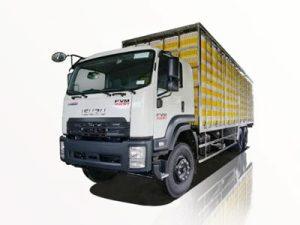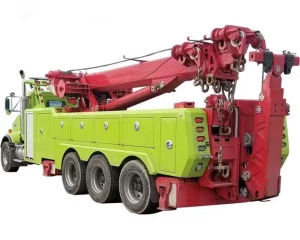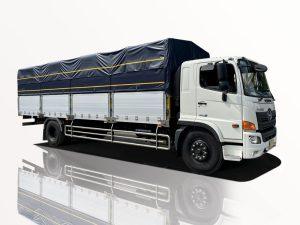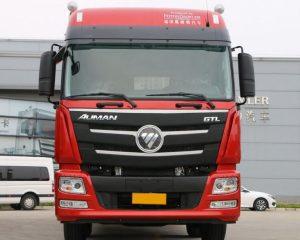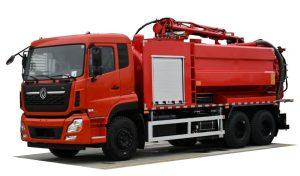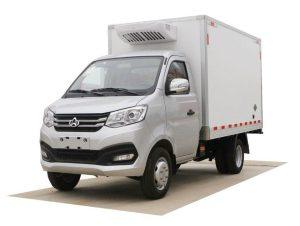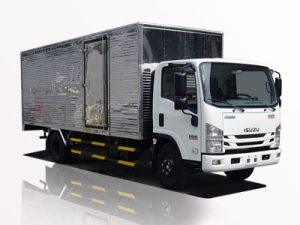Monday to Saturday - 8:00 -17:30
Cement Pump Truck for Sale: A Comprehensive Guide
Pumping concrete efficiently is a vital aspect of modern construction, and cement pump trucks have become indispensable tools on job sites. Whether you’re a contractor looking to expand your fleet or a DIY enthusiast planning a large project, understanding the features, benefits, and considerations of cement pump trucks will help you make an informed purchase decision. This article explores everything you need to know about cement pump trucks for sale.
Understanding Cement Pump Trucks
Cement pump trucks are specialized vehicles designed to transport and pump concrete to a specific location. They consist of a truck-mounted boom that can extend to reach high or distant locations, making them ideal for large-scale construction projects.
Types of Cement Pumps
There are primarily three types of cement pumps available:
- Line Pumps: Ideal for smaller jobs, line pumps use hoses to move concrete to its destination.
- Boom Pumps: These are versatile and can reach high elevations with a hydraulic arm, making them perfect for large projects.
- Trailer Pumps: Similar to line pumps, trailer pumps are portable and often used alongside concrete mixers.
How Cement Pump Trucks Work
Typically, a cement pump truck operates through a two-cylinder system. The two cylinders work alternately to suck concrete from the mixer and push it out through the boom. This continuous cycle allows for steady and efficient flow, reducing waiting time during pours.
Benefits of Using a Cement Pump Truck
Investing in a cement pump truck offers numerous advantages:
1. Increased Efficiency
Cement pump trucks can deliver concrete quickly and accurately, reducing overall project time.
2. Accessibility
With long booms, pump trucks can reach difficult locations that are otherwise hard to access, increasing the versatility of your operations.
3. Quality Control
Consistent pressure during delivery maintains the integrity of the concrete mix, leading to better construction quality.
4. Reduced Labor Costs
By automating the concrete delivery process, fewer workers are needed on-site, lowering labor costs significantly.
Factors to Consider When Buying a Cement Pump Truck
When looking for a cement pump truck for sale, several factors should influence your decision:
1. Type of Projects
Consider the type and scale of projects you usually undertake. For larger projects, a boom pump might be necessary, while smaller jobs may only require a line pump.
2. Boom Length
The length and reach of the boom are critical for accessing hard-to-reach areas. Evaluate the typical heights and distances you need to cover.
3. Truck Specifications
| Specification | Importance |
|---|---|
| Weight Capacity | Ensures the truck can handle the volume of concrete required. |
| Engine Power | Higher power ratings lead to better efficiency and performance. |
| Fuel Efficiency | Operational costs can be significantly impacted by the fuel economy of the vehicle. |
4. Brand Reputation
Research reputable brands known for durable and efficient equipment. Quality assurance can save you from costly repairs down the line.
5. Cost
Cement pump trucks can be a significant investment. Set a budget and explore financing options to make your purchase more manageable.
Where to Find Cement Pump Trucks for Sale
Finding the right cement pump truck can take some research:
1. Online Marketplaces
Websites like MachineryTrader, eBay, and Equipment Trader often have listings for new and used cement pump trucks.
2. Local Equipment Dealers
Visit local machinery dealerships, as they often have both new and used options. Plus, you may get a chance for in-person inspections.
3. Auctions
Equipment auctions are also a good place to find discounted pumps. Just ensure to inspect the equipment thoroughly before bidding.
4. Manufacturer Websites
Some manufacturers offer direct sales or can direct you to certified dealers in your area.
Maintenance Tips for Your Cement Pump Truck
Proper maintenance extends the life of your cement pump truck:
1. Regular Inspections
Conduct daily inspections of the boom, hoses, and hydraulic systems to ensure everything is functioning correctly.
2. Cleaning
After each use, thoroughly clean the equipment to prevent concrete buildup, which can damage components over time.
3. Lubrication
Regularly lubricate all moving parts according to the manufacturer’s recommendations to ensure smooth operation.
4. Scheduled Maintenance
Follow a maintenance schedule to check for wear and tear, and replace any worn parts promptly.
Cost Analysis: Is It Worth It?
Understanding the financial aspects of owning a cement pump truck is essential:
1. Purchase Price
The average price of a new cement pump truck ranges from $150,000 to $500,000, depending on factors such as brand and specifications.
2. Operational Costs
Consider costs such as fuel, maintenance, insurance, and potential repairs when estimating long-term expenses.
3. Potential Profits
Owning a cement pump truck allows you to undertake more significant projects, ultimately leading to increased revenue opportunities.
FAQs About Cement Pump Trucks
1. How much does a cement pump truck cost?
A new cement pump truck typically costs between $150,000 and $500,000, while used trucks may range from $50,000 to $200,000, depending on their condition and brand.
2. What is the lifespan of a cement pump truck?
With proper maintenance, a cement pump truck can last between 10 to 15 years, but this can vary based on usage and care.
3. Can I finance a cement pump truck?
Yes, many equipment dealers and banks offer financing options tailored for construction equipment purchases. Be sure to compare interest rates and terms.
4. What types of projects require a cement pump truck?
Cement pump trucks are commonly required for large construction projects such as skyscrapers, highways, and infrastructure projects, as well as for challenging residential pours.
5. Do I need a special license to operate a cement pump truck?
Yes, operating a cement pump truck typically requires a commercial driver’s license (CDL) and may also necessitate specialized training certifications.
6. How do I choose the right size pump truck for my needs?
Consider the volume of concrete you need to pump, the distance and height required, and the types of projects you typically work on to determine the right size.


